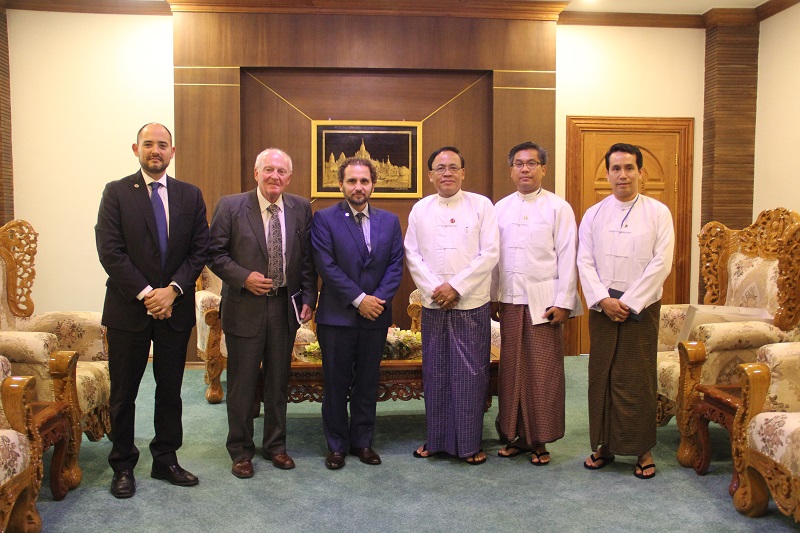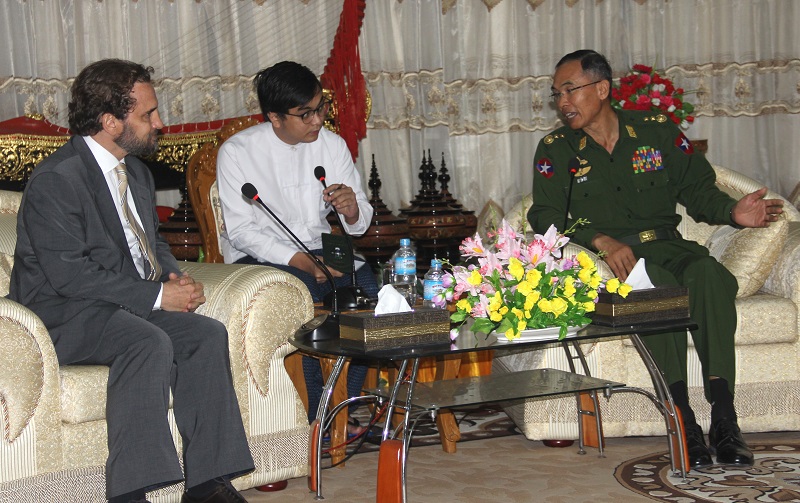|
04.06.2018
Download the press release |
Nay Pyi Taw, Geneva – A Convention Universalization Task Force led by Special Envoy HRH Prince Mired Raad Zeid Al-Hussein has concluded an official three-day visit to Myanmar. The Special Envoy met with senior leadership of the country to encourage Myanmar to begin the urgent work of mine clearance and strengthen the norm against landmines aimed at ending the casualties and suffering caused by these weapons.
“In our discussions with Myanmar’s leadership we stressed that mine clearance and assistance to victims of these weapons can serve as an important confidence-building measure that may help bolster the peace process in Myanmar,” said HRH.
“I feel encouraged by the fact that Myanmar has approved a compensation fund for mine victims. I encourage Myanmar to continue its efforts in providing victim assistance, mine risk education, carrying out non-technical survey, implementing data gathering and initiate humanitarian demining efforts in areas deemed safe and secure. These efforts are important for future development and are viewed by the Convention as steps in the right direction,” said HRH.
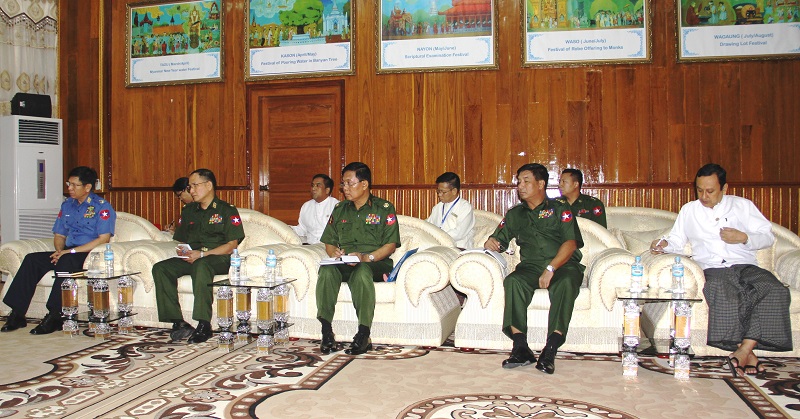 “I encouraged the Minister of Defense and his team not to wait to establish a national mine action centre so that Myanmar can start gathering information on landmine contamination in the country. That way, the day Myanmar begins its humanitarian demining operations, the Armed Forces and operators will be prepared to task clearance teams and strengthen activities, hence avoiding further casualties,” added Prince Mired.
“I encouraged the Minister of Defense and his team not to wait to establish a national mine action centre so that Myanmar can start gathering information on landmine contamination in the country. That way, the day Myanmar begins its humanitarian demining operations, the Armed Forces and operators will be prepared to task clearance teams and strengthen activities, hence avoiding further casualties,” added Prince Mired.
Ret. Lt. Col. John MacBride who for years led Canada’s efforts regarding military-to-military dialogue with the Armed Forces of States not party to the Convention, and undertook considerable work regarding the relative military utility of anti-personnel mines was part of the Task Force that met with the Ministry of Defense.
“As a soldier, I fully understand that armies are not always willing to give up weapons,” he said to the Ministry of Defense team.
“The fact that you have unilaterally decided to stop laying anti-personnel landmines is a tremendous step forward. If no such future use is envisioned, then, there is no need to produce them. A positive first step could be to declare a moratorium on production” said the Lt. Col. to the meeting.
The Task Force which included the Director of the Convention’s Secretariat also reminded both Ministries that countries undergoing similar circumstances to Myanmar’s, such as use of anti-personnel mines by armed non-state actors, have become Parties to the Convention.
“Afghanistan, Colombia, Iraq are but a few examples of States that have understood the importance of banning anti-personnel mines even while experiencing conflict. This need not be an impediment for a State to joining the Convention,” said Juan Carlos Ruan.
HRH also invited Myanmar to attend the Convention meetings on 7-8 June and 26-30 November in Geneva and report on its mine action initiatives.
Other meetings in Myanmar
The visit started on 28 May in Yangon where the Task Force met with Myanmar mine action partners. This included the Delegation of the European Union – which sponsored the visit through a Decision adopted by its Council – Australia, Czech Republic, France, Germany, New Zealand, Norway, Switzerland, and the United Kingdom, and international organisations ICRC and UNICEF. The latter, is also the co-Chair of a national Mine Risk Working Group that involves the work of 10 ministries and 28 international and non-governmental organisations.
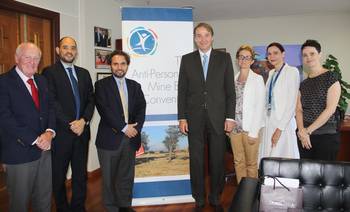 |  |
 | 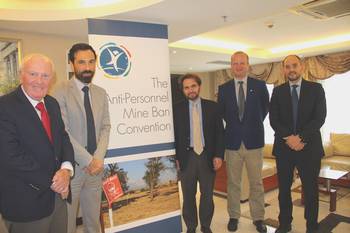 |
The Task Force also met with representatives of non-governmental organisations leading mine action and victim assistance activities in Myanmar including Humanity and Inclusion, the Myanmar Campaign to Ban Landmines, the Myanmar Physically Handicapped Association – to which he also paid a visit; and of mine clearance operators, DCA, DDG, HALO Trust and MAG.
 | 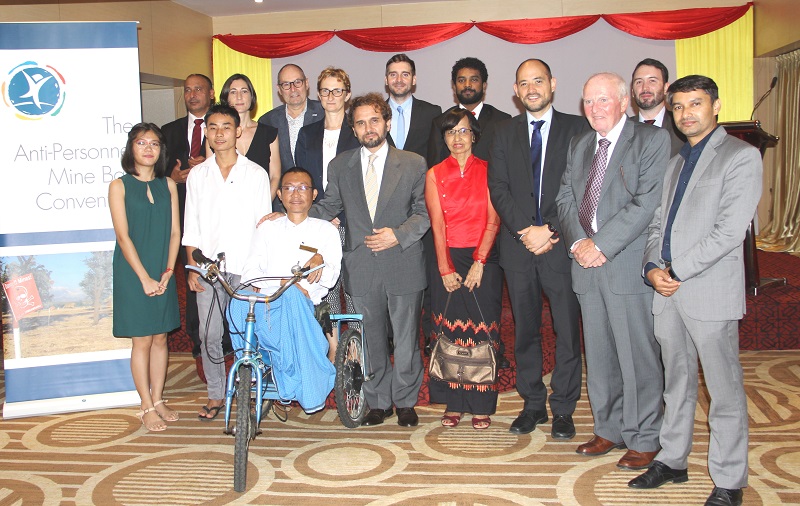 |
The Convention, adopted and signed in 1997, entered into force in 1999. Under the Convention, 30 of 61 mine-affected States have declared completion of their mine clearance obligation, freeing for normal use millions of square metres of land. All but 33 of the world’s States have joined the Convention; most of which obey its norms.



